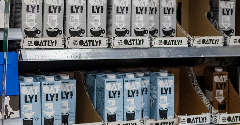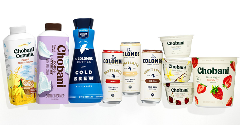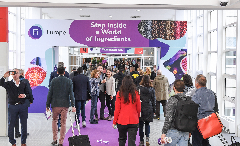News
APAC pursues regulatory approval for cellular agriculture
13 Nov 2023Several Asia-Pacific nations sign an MOU and launch a new platform for cross-border collaboration to speed up regulatory review processes and approval.
Cultivated foods have garnered increased attention from policymakers in the Asia Pacific (APAC) region as this emerging food technology has the potential to deliver a steady supply of protein without conventional meat production's associated environmental and ethical concerns.

“But very few regulators in the region have experience processing cultivated food applications, and many, therefore, have questions around existing safety assessment methodologies and the appropriate controls required to prevent potential hazards,” Mirte Gosker, managing director of the Good Food Institute (GFI) APAC, told Ingredients Network.
As a result, industry insiders from Singapore, Australia, China, Israel, India, Japan, South Korea, Malaysia, and Indonesia have signed an MOU to create an industry forum to bring together leading voices influencing the APAC cellular agriculture space and influence cultivated meat and seafood development.
Progressing regulations
Singapore and the US are the only global countries to have approved the commercial sale of certain cultivated meat products. Many other countries, however, are actively developing their regulatory frameworks or considering pursuing cellular agriculture in this way.
Currently, cultivated food products are also subject to different regulatory frameworks across the APAC region, with relevant regulatory authorities taking a case-by-case approach to their safety assessments. “A collaborative regulatory forum that brings together key stakeholders is thus a welcome step to further facilitate knowledge-sharing and to support cross-border coordination among the national food regulators in the APAC region,” Gosker continues.
In Asia, many countries have yet to create protocols to review cultivated meat and seafood applications. While this may not halt new product concepts and production, it is slowing market entry of more secure and sustainable foods, GFI stated in a recent press release.
The APAC Society for Cellular Agriculture (APAC-SCA) and the Good Food Institute APAC (GFI APAC) have set up the APAC Regulatory Coordination Forum, in response. It aims “to effectively bring cultivated food products to the market across the world’s most populous region”, adds Gosker.
 Pictured: Cultivated meat | © AdobeStock/DyrElena
Pictured: Cultivated meat | © AdobeStock/DyrElena
The arrival of the forum hopes to mark a new phase in cellular agriculture acceptance. The forum aims to facilitate the coordination of regulatory efforts within APAC to build an effective cultivated food regulatory environment, minimising hurdles and bottlenecks. It seeks to standardise regulatory approaches on novel topics that have yet to be addressed, such as hybrid product definitions and novel cell cultivation technologies.
Also, the forum is designed to give mutual recognition of coordinated regulatory frameworks in APAC such as the alignment on criteria for safety testing, labelling, and inspections. He organisations behind its development note this would significantly reduce the time and resources needed for regulatory approval while minimising trade barriers and cost to consumers.
Focusing on this area may open up potential opportunities to develop trust between authorities, creating “fast lanes” to approve companies already authorised for sale in another regional country.
Aligning efforts
The duo has launched a new platform for cross-border collaboration to accelerate cultivated meat’s regulatory review processes and approval to promote its wider acceptance. It seeks to provide guidance rather than mandate how regulations should be. Therefore, Gosker says it “aims to coordinate and amplify existing work while serving as a complement to current developments”.
The forum will focus on all aspects of cultivated food regulations, including terminology, growth media components, cell line development, labelling, food safety, nutrition, religious rulings and standards, and any other topic relating to cellular agriculture that may contribute to developing regional best practice standards.
Developed in November 2023 and coinciding with Singapore International Agri-Food Week (SIAW), the forum seeks to act as a formal mechanism for continuous and systematic cross-border dialogue between companies, industry associations, think tanks, governmental agencies, and regulators in different jurisdictions. It strives to transparently share information, collaborate on inputs such as data or safety assessments, and provide open discussions and viewpoints between regional partners.
Further, it will coordinate information across borders to all participants transparently, bringing each participating member up to date with current developments and trends. The forum aims to ensure that cultivated foods can adhere to religious rulings and standards such as halal and kosher, where coordinated efforts are needed to build consensus on this topic across the region.
 Pictured: Lab grown meat alternatives | © AdobeStock/ricka_kinamoto
Pictured: Lab grown meat alternatives | © AdobeStock/ricka_kinamoto
Through the platform, the various bodies will collectively collaborate to develop clear and compelling pathways towards the commercialisation of cultivated foods, thereby reducing the time to market for cultivated food producers and creating a level playing field when it comes to imports and exports.
A global presence
To enable cultivated meat and seafood to reach their full potential as food security and climate solutions, they need to traverse from having a presence in early-adopter markets to attaining global distribution, GFI APAC says.
“By bringing together industry leaders and regulatory officials from countries across Asia Pacific, we are working to reduce duplication of efforts, streamline international approval processes for novel food producers, and create a clear pathway to market for innovative new products,” Gosker added.
“Ultimately, we envision a clear and effective contingency for the industry as a whole towards commercialisation of cultivated food products across the region,” Peter Yu, programme director at APAC-SCA, said.
Related news

UK High Court allows Oatly to use 'milk' on packaging
17 Jan 2024
Oatly has scored a landmark victory in the use of the word milk after the UK High Court ruled against the country’s dairy industry and permitted the term to be used on packaging.
Read more
Chobani expands drink presence with La Colombe acquisition
16 Jan 2024
Greek yoghurt giant Chobani has purchased US coffee brand La Colombe Coffee Roasters for $900 million, furthering its expansion into beverage categories like coffee, oat milk, creamer and ready-to-drink offerings.
Read more
PepsiCo to reshape convenient foods portfolio with less sodium and more plant proteins
10 Jan 2024
PepsiCo has revealed details of two nutrition goals that look to reduce sodium and boost consumption of legumes, whole grains, and plant-based proteins as part of the multinational’s expanded convenient foods portfolio.
Read more
Meet the innovative ingredients showcased at Fi Europe’s New Product Zone
3 Jan 2024
The Food Ingredients category at Fi Europe’s New Product Zone featured 19 distinct and innovative products. From fermented delights to sustainable proteins, these ingredients are ready to make their mark in the market.
Read more
Fi Europe’s New Product Zone elevates the nutrition of everyday indulgences
22 Dec 2023
At Fi Europe 2023's New Product Zone, eight health ingredients, each offering an enhanced nutritional profile of various products, were on display. These ingredients address the evolving needs of the food and beverage industry and cater to consumers se...
Read more
MyAir plans to expand personalised adaptogen products to UK
15 Dec 2023
After launches in Japan and the US, B2B personalised nutrition company MyAir is eyeing the UK market with its white-label functional food and drink products. “Taste is a must – but it's not enough,” says its CEO. “Food has become functional and persona...
Read more
Augmented technology is the gateway to new food experiences
13 Dec 2023
Harnessing augmented reality as a digital tool could offer consumers increasingly personalised food and beverage experiences, opening up new ways to see and taste products, according to a report by Canvas8 and Givaudan.
Read more
Colombia introduces tax on ultra-processed foods
7 Dec 2023
In a bid to curb rates of obesity and other non-communicable disease, the Colombian government has introduced a tax on various ultra-processed food (UPF) and drink products.
Read more
Snack trends, ingredient claims, and plant-based perceptions: Highlights from Fi Europe 2023, part 1
7 Dec 2023
Value-led snacking, sustainability storytelling, and the importance of having a ‘star ingredient’: we asked consumer analysts and market experts at Fi Europe about the trends and innovations that are shaping the food industry.
Read more
Consumers want more plant-based meat without GM ingredients
28 Nov 2023
Plant-based meat has been a hot and popular category for several years, but not all North American shoppers are embracing vegetarian alternatives that contain genetically modified (GM) ingredients, according to the Non-GMO Project.
Read more